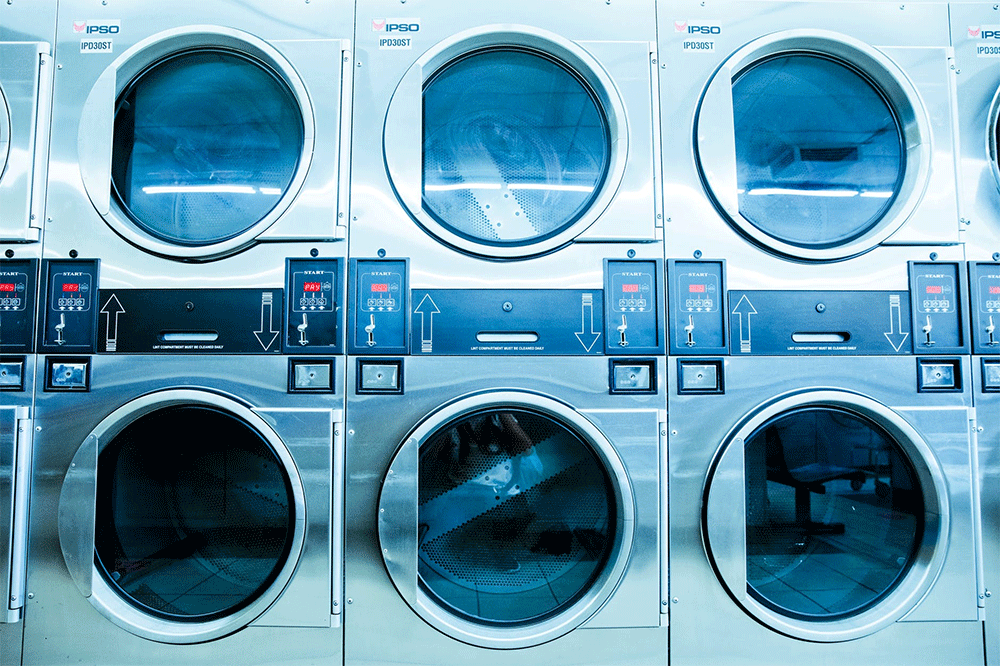When it comes to our washing machines, many of us cannot live without them. We cannot imagine a world where our washing machine isn’t running daily. Seriously, how did Bree Van de Kamp only do her washing twice a week?
But with all this washing comes the dreaded energy bill and the question, how much does it cost me to run my washing machine?
The last thing any of us want to see is a high energy bill at the end of every month. So we shop around, looking for low wattage machines, eco-friendly cycles, but still, we wonder, is this machine using energy I just don’t know about?
Well, today, we are here to tackle all your washing machine energy-related queries! Be prepared to become an expert in energy usage and your favorite appliance, the washing machine!
Do washing machines use electricity when not in use?
Yes, the sneaky bugger, your washing machine is still using electricity when not in use. Now, before you wage war with your washing machine, all appliances do this!
If your washing machine or other electrical appliance is plugged in, we will use what we call “standby electricity”.
Standby electricity is often used when an appliance is in standby or idle mode.
There might be a light on, like the standby light on your TV, or no indication at all. But this mode can use electricity; after all, it takes power to keep that light on.
Even when the machine isn’t on standby or used, it will draw power from your main switch if the machine is plugged in. This happens, as we mentioned, with all electrical appliances.
While the usage is incredibly low over the months and years, it can add some serious dollars to your energy bill.
The only way to ensure that your washing machine is not using electricity unnecessarily is to switch the mains plug off when your washing machine is not in use.
The simple step will avoid leaving your machine on standby or using any electricity, saving you some money in the long run.
When you are ready to use your machine again, simply flick the mains switch on, and your washing machine will come back to life. The perfect way to save some money on your electricity bill.
Do washing machines use gas or electricity?
Washing machines use electricity, not gas. You will be hard-pressed to find a washing machine using gas to power it as they plug into your electric mains switches.
You can tell if your washing machine is electric by the plug on it to connect the machine to your electric system at home.
Suppose you are buying a new washing machine. In that case, you will find them listed under electrical appliances on websites and their electrical configuration (wattage, plugs, etc.) listed in their product description or information section.
While gas washing machines don’t exist, you can get gas dryers! Often these won’t be a washer/dryer combo but a stand-alone dryer.
If there is a gas line behind the dryer or a copper or flexible gas line connected to the dryer, it is a gas dryer.
Alternatively, the existing pipework suggests that you can add a gas dryer to your home. Be sure to have a professional check the gas line is safe for operation if the line has not been used by yourself or in a while.
If you are in rented accommodation, you might also need a gas safety certificate before using the line. You can check with your landlord or state regulator.
Does a washing machine have a transformer?
Yes, a washing machine does have a transformer! The transformer will convert power from the grid to the correct voltage that your washing machine requires to run correctly.
It’s the transformer’s job to ensure no power surges or fluctuations could damage your machine or the electrical system in your home. But it isn’t always needed.
Sometimes, your machine will take power directly from the wall when running on 120/220V, usually just running the machine through a cycle.
On the other hand, the computer will require a lower voltage to track your washing machine’s timings, actions, and temperature.
It’s the computer part of your washing machine that needs the transformer to ensure it gets the correct voltage and doesn’t cause any power fluctuations or failures.
The transformer is located in the AC induction motor. The motor is responsible for powering the machine, spinning the drum when in use, and running water pumps.
It is all of these actions that result in clean clothes at the end of a cycle! While you may never come face to face with your transformer, it’s an essential part of your washing machine that keeps it operating smoothly.
Related Washing Machine Articles:
- Do Washing Machines Use A Lot of Electricity?
- Is It Cheaper To Use A Washing Machine At Night?
- How to Know if my Washing Machine Drain is Clogged
- What Are the Best Small Tumble Dryers for Flats in the UK
- Can You Run a Washing Machine Empty to Clean It?
- How Do I Stabilize My Washing Machine?
- Is Bosch a Good Washing Machine Brand?

